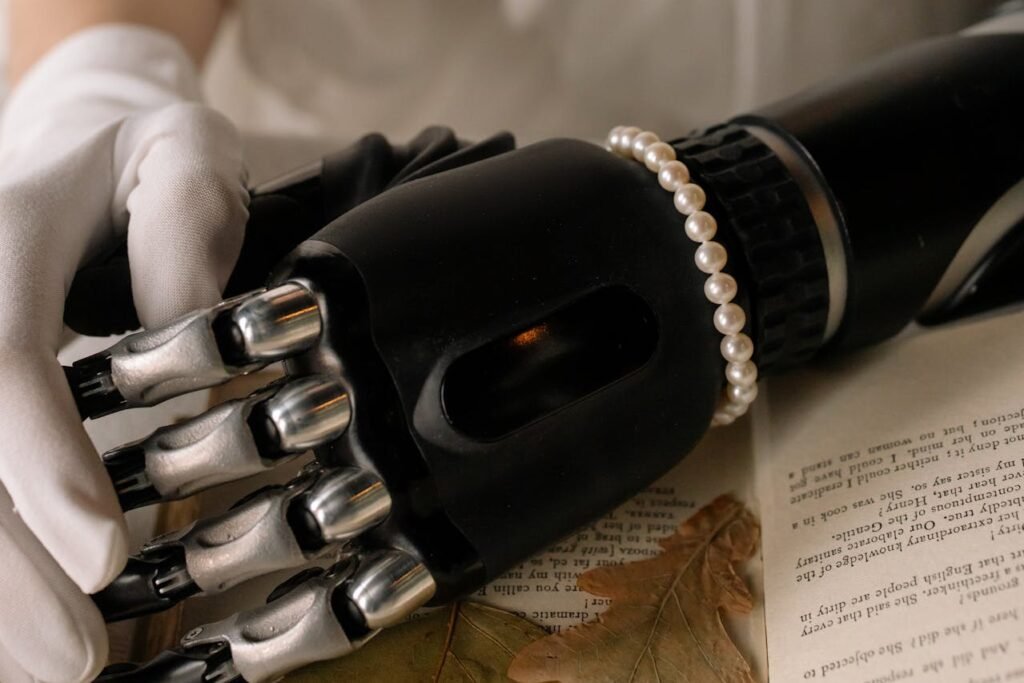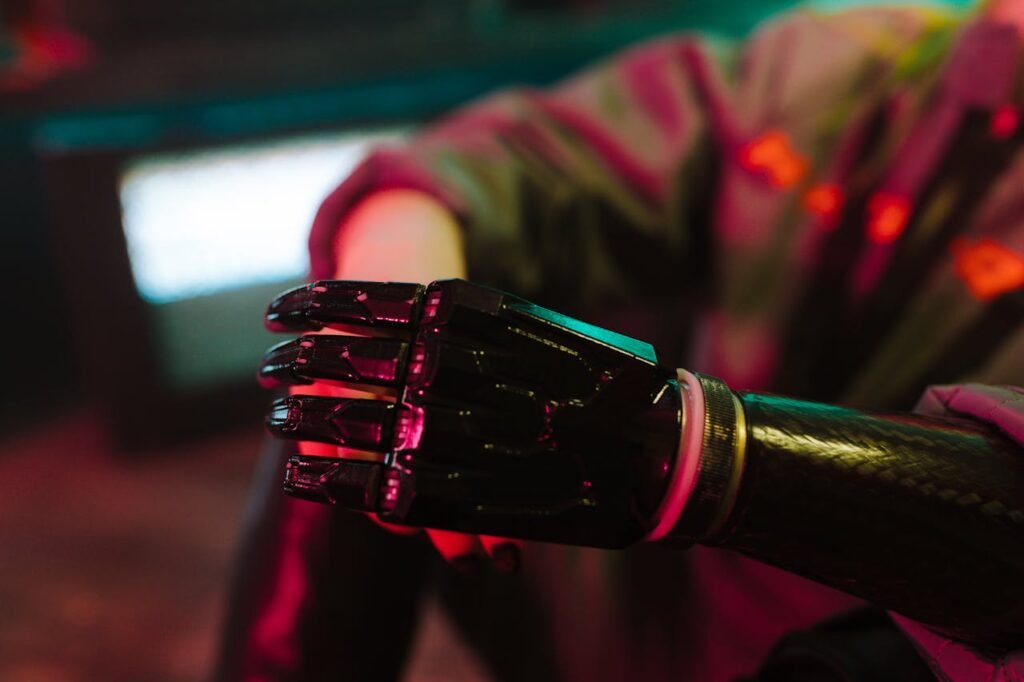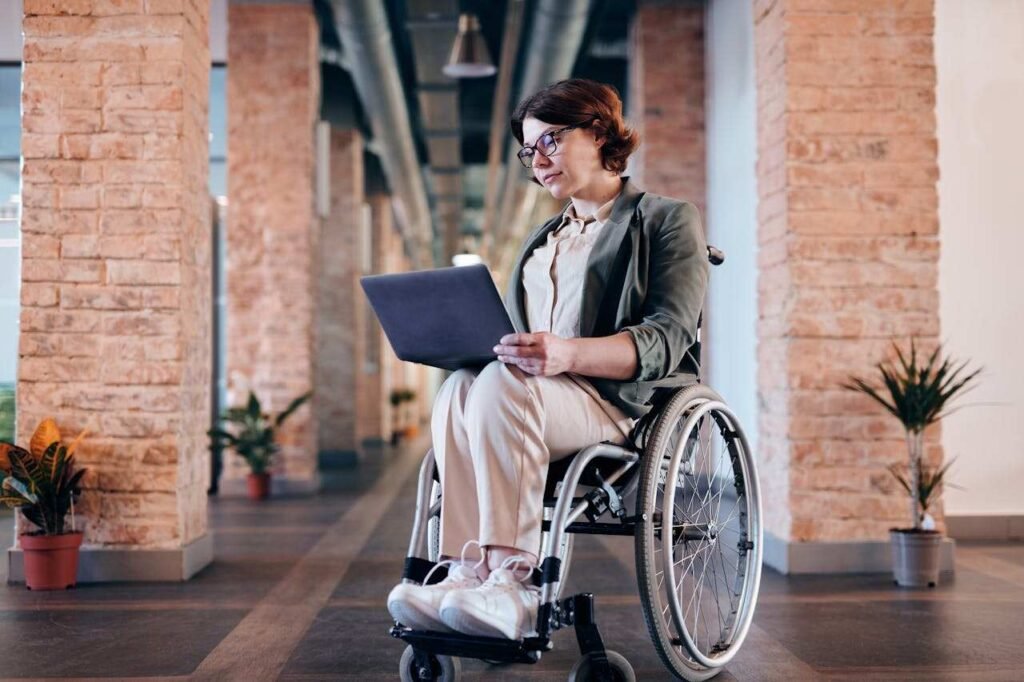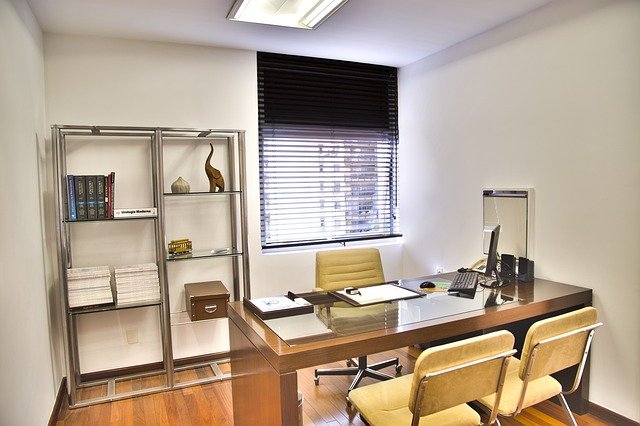There’s a quiet strength in living openly with a prosthetic hand. For many women in India, the journey of adapting to a prosthetic isn’t only about learning to use it—it’s about how to face the world with confidence when people notice, stare, or ask questions.
While prosthetic technology has advanced beautifully, public understanding hasn’t always kept up. Some people are curious, some are kind, and others may unintentionally make you uncomfortable with their words or expressions. But every question is an opportunity—a moment to teach, to normalize, and to show that your story is one of resilience, not limitation.
This article from Robobionics explores how to handle public perception with grace and confidence. From managing questions at work or social events to responding to children’s curiosity or strangers’ stares, it’s a guide designed to help you navigate the human side of prosthetic life—calmly, kindly, and powerfully.
Understanding Why People React Differently
The Role of Curiosity and Unfamiliarity

Most people who notice your prosthetic hand are simply curious, not judgmental.
In India, prosthetics are still not something many see every day. So, when someone notices your hand, their reaction often comes from surprise or genuine interest, not insensitivity.
Children, for instance, may ask direct questions, while adults may hesitate or stare quietly. Recognizing that most reactions come from curiosity helps you approach them with patience instead of discomfort.
The Emotional Lens of Others
Everyone has a different emotional response to visible differences. Some people feel compassion and want to help; others feel unsure about what’s appropriate to say.
When someone hesitates to speak or acts awkwardly, it often means they’re afraid of offending you, not that they see you negatively.
Understanding this helps you take control of the interaction instead of letting it control you. You can guide the tone and make them more comfortable by being calm and confident.
The Influence of Social Conditioning
Cultural and social backgrounds play a big role in how people perceive prosthetics.
In some communities, medical devices are still associated with illness or disability. Others might see them as signs of strength or technology.
As more people become aware of modern prosthetic design and how seamlessly users adapt, perceptions are slowly shifting from sympathy to admiration.
Your presence in daily life, whether at work, in public transport, or at an event, becomes part of that social change.
How First Impressions Shape Reactions
First impressions matter—for both sides.
When people see how confidently you carry yourself, their perception often changes immediately. Your posture, smile, and openness set the tone of the interaction.
If you seem at ease, they take their cue from you. That’s the unspoken power you hold—the ability to shape the energy of every encounter.
Confidence, even in silence, communicates that your prosthetic isn’t something you hide; it’s just another part of who you are.
The Impact of Media and Representation
Movies, advertisements, and news stories have only recently started portraying prosthetic users in empowering ways.
In earlier years, prosthetics were often shown as symbols of tragedy or loss. Now, with changing awareness, they’re becoming symbols of resilience and achievement.
Still, not everyone has seen these modern representations. When someone’s reaction feels outdated, remember—it’s their exposure that’s limited, not your value.
Every time you walk confidently into a room, you’re rewriting what a prosthetic means in real life.
Building Inner Confidence Before Facing the World
Accepting Your Journey Fully

Confidence begins not from what others think—but from how you see yourself.
The day you accepted your prosthetic hand was a day of change. It wasn’t only about physical adjustment; it was about rebuilding a relationship with your body. That acceptance takes time, and that’s perfectly normal.
Every woman experiences that journey differently. Some embrace it instantly, while others go through phases of hesitation, pride, and finally, peace.
Allow yourself to feel all of it. Confidence grows naturally when you stop fighting how you feel and start understanding that every part of you tells a story of strength.
Learning the Power of Practice
Confidence isn’t a switch—it’s a muscle that strengthens through use.
At first, you may feel nervous stepping out in public or meeting new people. But every small interaction, every smile you exchange, and every question you answer adds to your ease.
Practice helps remove fear. You realize that most people are kind, that stares don’t last forever, and that your own comfort calms others too.
It’s not about pretending to be strong; it’s about showing up even when you don’t feel ready.
The Mirror Exercise for Confidence
One simple yet powerful way to build confidence is through the mirror exercise.
Every morning, stand before a mirror, look directly at yourself, and smile. Move your prosthetic hand naturally—adjust your hair, button your clothes, or lift a cup.
The goal is not to check appearance but to create familiarity. The more you see yourself in motion, the more natural your reflection feels.
Soon, your mind stops separating the prosthetic from the rest of your body—it becomes simply your hand.
This subtle change reflects outwardly. People see comfort when you carry it first.
Wearing What Makes You Feel Good
Clothing plays a surprisingly big role in confidence.
Choose sleeves, colors, or accessories that make you feel beautiful and at ease. For some women, showing their prosthetic openly feels empowering; for others, subtle styling offers comfort.
There’s no rule here—only choice. Wear what helps you walk tall.
When your outfit feels like you, your movements follow naturally. Your prosthetic becomes an accessory of strength, not something to hide.
Finding Your Own Rhythm in Social Spaces
Every public space—whether a market, a classroom, or an office—has its own rhythm. Confidence grows when you find yours.
Start small. Maybe visit a café alone, attend a gathering, or walk through a park. Let people see you as you are.
Each experience teaches you something about your comfort zones. Soon, your focus shifts from how others look at you to how freely you can move.
That shift—from awareness of others to awareness of yourself—is what turns discomfort into calm confidence.
Controlling Your Inner Dialogue
What we tell ourselves matters more than what others say.
If your inner voice constantly worries about being judged, your body will show that unease. But when your inner dialogue is gentle and positive, it reflects in your posture, your smile, and your tone.
Whenever you catch yourself thinking, “They might stare,” replace it with, “I’m doing great.”
It’s not denial—it’s training your mind to support you.
The stronger your inner voice becomes, the less external opinions can affect you.
Drawing Strength from Others Like You
Sometimes, the best confidence booster is seeing others live freely with prosthetics.
Joining online groups or meeting other women with similar experiences reminds you that you’re part of a larger, inspiring community.
When you share stories or advice, you realize you’re not alone. You see reflections of your own growth in others’ journeys.
That collective strength is powerful—it helps silence doubts and replaces them with pride.
The Role of Family and Friends
Loved ones play a huge role in rebuilding self-assurance.
When your family treats your prosthetic as normal, others around you learn to do the same. Their comfort teaches the world how to respond.
Encourage your close ones to use natural language—like saying “your hand” instead of “your prosthetic.” That small shift reinforces normalcy.
Over time, this environment of ease shapes your emotional resilience. You start stepping into the world already surrounded by confidence.
Celebrating Everyday Wins
True confidence grows through small moments of success.
Every time you do something new—shake a hand, drive a scooter, or attend a function—you prove your capability to yourself.
Keep track of these small wins. They’re not just daily tasks; they’re reminders that you’ve come farther than you think.
When you acknowledge your progress, fear loses its power.
Handling Questions, Curiosity, and Public Reactions Gracefully
The First Reaction: Staying Calm and Grounded

When someone points out your prosthetic hand or asks about it, your first instinct might be to feel tense or defensive. That’s completely natural.
But the secret to managing these moments lies in your composure. Take a small breath before responding. A calm tone and relaxed expression set the tone for the conversation.
People mirror your energy. If you react confidently, they treat the subject with the same ease. What could have been awkward turns into a simple human interaction.
It’s not about ignoring their curiosity—it’s about guiding it with grace.
Choosing How Much to Share
You don’t owe anyone your story. How much you share is entirely your choice.
If it’s a friend or colleague who asks sincerely, you might feel comfortable explaining how your prosthetic works or what inspired you to get it. If it’s a stranger asking out of curiosity, a short, polite answer is perfectly fine.
You might say something like, “It’s my prosthetic hand—it helps me with daily activities,” and smile. That’s enough.
Remember, you decide the boundaries. Confidence isn’t about always explaining—it’s about being at peace with saying only what you want.
Turning Curiosity into Understanding
When you choose to answer, you have the power to educate gently.
If someone asks how your prosthetic functions or whether it’s heavy, explain in simple terms. You could say, “It’s lightweight and designed for comfort. It lets me do almost everything I used to.”
These answers demystify the technology and show how normal and empowering prosthetics can be.
Your calm tone does more than inform—it shifts perception. It replaces pity with respect.
Handling Stares Without Losing Confidence
Sometimes, people won’t ask questions—they’ll just stare. This can be harder to deal with because it feels silent but visible.
The truth is, most people don’t mean harm. They’re often curious or unsure how to act. A simple smile or nod can break that silence gracefully.
If it’s prolonged or uncomfortable, you can meet their eyes confidently and look away naturally. The goal isn’t confrontation—it’s quiet assurance.
Every confident response teaches others that difference isn’t something to be stared at—it’s something to be respected.
Responding to Inappropriate Comments
Occasionally, someone might say something thoughtless or intrusive. Maybe they ask, “What happened to you?” in a blunt tone.
In those moments, protect your peace first. You can respond with firmness and politeness, saying, “I prefer not to talk about that, thank you.” Then move the conversation forward.
You don’t have to explain or justify. Setting clear boundaries shows strength without confrontation.
And remember—how someone speaks reflects their understanding, not your worth.
Educating Through Confidence
Sometimes, people simply haven’t met anyone with a prosthetic before. That’s why every time you move confidently in public—shopping, commuting, working—you become an unspoken educator.
Your actions normalize prosthetic use far more effectively than long explanations ever could.
When people see you button your sleeve, hold your phone, or carry your bag with ease, it quietly changes how they think. You’re showing, not telling, what capability looks like.
This kind of awareness builds empathy and inclusion wherever you go.
Handling Questions from Children
Children often ask the most direct questions, and they mean no harm.
When a child asks, “Why is your hand different?” or “Can I touch it?”, respond kindly. Say something like, “It’s a special hand that helps me do things,” and smile.
If you’re comfortable, you can let them look closer—but never feel obligated. By responding warmly, you teach them curiosity without fear or judgment.
You might not realize it, but that small moment shapes how that child will view differences for the rest of their life.
Dealing with Reactions in Public Transport or Markets
Busy spaces like buses, metros, and markets bring a mix of people and reactions. Some may offer seats or try to assist; others may stare silently.
The best approach is calm acknowledgment. If someone offers help you don’t need, thank them kindly. If someone seems curious, meet it with quiet confidence.
These places can feel overwhelming at first, but every outing builds comfort. Eventually, you’ll move through crowds without a second thought.
Your routine presence itself breaks stereotypes. People start seeing ability instead of disability.
Workplace Conversations and Professional Settings
At work, colleagues may ask questions out of genuine curiosity or admiration.
It helps to keep the conversation short and neutral. You could say, “Yes, it’s my prosthetic hand. It helps me with daily tasks just like anyone else.” Then smoothly shift back to the topic at hand.
This not only answers their curiosity but also signals professionalism. It reminds people that your identity goes far beyond your prosthetic—it’s your work, your talent, your contribution that matters.
Over time, your confidence becomes part of your professional presence, inspiring quiet respect.
Social Gatherings and Family Functions
In Indian social settings, especially large family events, people love to talk—and sometimes overstep.
Relatives or acquaintances might ask questions out of concern, not realizing they’re being personal. The key is to manage it with gentle boundaries.
Smile and say, “It’s something that helps me a lot—I’m very comfortable with it,” and steer the conversation elsewhere.
If someone keeps pressing, you can politely excuse yourself or change the subject. You owe no extended explanation, especially in spaces meant for joy and connection.
Learning to Laugh Naturally
Sometimes, humor can dissolve awkwardness faster than words.
If a friend or child says something innocent, responding with light humor can put everyone at ease. You might say, “Yes, it’s my super hand—it even makes better chai than before!”
A little laughter reminds people that you’re approachable and confident, while subtly showing that your prosthetic doesn’t define your personality.
Laughter, in many ways, is the sound of confidence made audible.
Rebuilding Social Comfort and Public Confidence Over Time
The Process of Growing Comfortable in Public

Confidence in public isn’t something that appears instantly. It grows with time, experience, and repetition.
Your first few outings after getting a prosthetic might feel overwhelming. You might notice stares or worry about how to move freely in social spaces. But over time, those thoughts fade.
Every trip outside—whether it’s to a shop, office, or café—builds your comfort layer by layer. The key is consistency. The more you participate in daily life, the less power those fears hold.
Confidence doesn’t arrive one day—it unfolds quietly through everyday actions.
Redefining What “Normal” Means
One of the biggest shifts happens when you stop comparing yourself to who you were before and start defining your new normal.
Normal isn’t about having two natural hands—it’s about living fully with the one you have now. Your prosthetic hand becomes a part of that normal, blending into your routine naturally.
When you reach that stage, public reactions no longer unsettle you. People’s curiosity feels lighter, and you start moving through spaces with ease.
Your version of normal is valid, beautiful, and entirely yours.
Creating a Confident Body Language
Body language speaks before words do. The way you carry yourself shapes how people perceive you long before you speak.
Stand upright, keep your shoulders relaxed, and look people in the eye. Even small gestures—like a friendly nod or a calm smile—show quiet confidence.
Your prosthetic is not something to hide behind; it’s part of the posture that communicates strength.
When you move naturally, others mirror your comfort. You don’t just appear confident—you become the definition of it.
Small Social Challenges to Build Confidence
If large crowds still make you uneasy, start with smaller challenges.
Visit a familiar café, attend a close friend’s gathering, or walk through a quiet park. As you get used to being seen, increase your exposure gradually.
This step-by-step approach helps your mind adjust without stress. Each success becomes a small confidence deposit, making the next situation easier.
Soon, you’ll be navigating busy markets or corporate meetings without a trace of hesitation.
Finding Support in Safe Circles
Confidence thrives in the right company.
Spend time with friends, family, or colleagues who make you feel comfortable and respected. They’ll naturally help you grow stronger in public settings.
Their presence acts as a cushion when you’re in unfamiliar environments. With them around, you can handle any awkward moment with laughter or grace.
And slowly, you’ll find you don’t need that support as much anymore—because your self-assurance will become enough.
Embracing Your Uniqueness
There’s beauty in being different. What makes you unique can also make you unforgettable.
People remember confidence. They remember grace. They remember someone who carries themselves proudly despite standing out.
Your prosthetic hand can become a symbol of individuality, not limitation. Many women choose to style their prosthetics, personalize colors, or accessorize with jewelry.
These choices make your hand not only functional but also fashionable—an expression of who you are.
Turning Awareness Into Empowerment
Every time you interact confidently, you’re not just representing yourself—you’re shaping how society views prosthetic users.
You’re showing others that life after limb loss isn’t about restriction but rediscovery. You’re proving that elegance, intelligence, and independence can coexist with technology and resilience.
When young girls or new prosthetic users see you moving freely, you become their unspoken role model. That’s real empowerment—one quiet moment at a time.
Managing Social Media Presence
In the modern world, confidence also extends online.
You might choose to share your journey on social platforms—posting photos, writing reflections, or showing how your prosthetic helps you live fully.
This openness doesn’t just inspire others; it redefines what visibility looks like for people with assistive technology.
However, if you prefer privacy, that’s equally valid. Confidence isn’t about public sharing—it’s about living on your terms.
Dealing with Emotional Overload
There will still be days when a comment or stare feels heavier than usual. That’s okay.
Confidence isn’t the absence of emotion—it’s learning how to return to balance.
If a situation leaves you upset, take a quiet moment afterward. Breathe, remind yourself of your worth, and let the moment pass. You are not your bad day, and one awkward encounter doesn’t erase your progress.
Each challenge strengthens your emotional resilience, preparing you for the next moment with more ease.
Encouraging Others Through Your Example
As you grow more confident, you’ll naturally start helping others on similar journeys.
Whether through conversation, mentorship, or simple presence, you become a source of reassurance. You show others that public confidence is possible, no matter how unfamiliar it feels at first.
By living fully and authentically, you become the living example of empowerment that others quietly draw courage from.
Confidence with a prosthetic hand isn’t about pretending that questions or stares don’t exist—it’s about meeting them with understanding and grace. It’s learning that curiosity is human, and your calmness teaches others how to respond with respect.
Every interaction becomes a small act of awareness. Whether it’s a stranger at the market, a colleague in a meeting, or a child who asks out of pure curiosity, your response builds empathy. You show that your prosthetic hand isn’t a barrier—it’s a bridge between resilience and modern possibility.
True confidence comes from knowing that you are more than your story. You are not defined by how others see you but by how you see yourself. Your prosthetic is not a symbol of loss; it’s a reminder of your strength, your choices, and your will to live fully.
Over time, the questions fade. What remains is admiration—for your courage, your ease, and your authenticity. And every time you walk out into the world with your head high, you quietly change what society believes about ability, beauty, and confidence.
At Robobionics, we believe confidence grows not from perfection but from comfort. Our mission is to create prosthetic hands that help you move naturally and live freely—so that the world sees what truly matters: your spirit.



